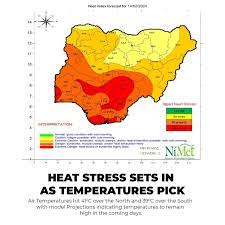Nigerians are currently facing an unusual challenge as scorching heatwaves and widespread power outages grip the nation, leaving many areas in prolonged darkness.
Major cities like Lagos, Abuja, and Port Harcourt are struggling with deteriorating power supply, with electricity distribution companies attributing the issue to low generation caused by gas shortages and incessant collapse of the national grid.
The prolonged blackout, lasting for weeks in some regions, is disrupting daily life for residents, impacting businesses, healthcare services, and households heavily reliant on electricity from the national grid.
Tosin Adedeji, a Lagos resident and small business owner, lamented the severity of the situation, saying, “I have never experienced this before in recent times. It all began last December. Before then, we used to have light for about 16-18 hours every day, but now we barely get 4 hours.”
Emeka Ezeh, head of corporate communications at the Enugu Electricity Distribution Company Plc (EEDC), acknowledged the inconvenience faced by customers in the Southeast, offering apologies while citing factors beyond their control. He added, “Efforts by stakeholders in the power sector aim to address the issue, with hopes for a swift return to normal distribution.”
Experts point to global warming and ozone layer depletion as contributors to the severe heatwaves, thus worsening the situation for Nigerians amid the dwindling power supply.
The Nigerian Meteorological Agency (NiMET) recently posted on its official X handle, reporting continuous high temperatures across the nation. Air temperatures have reached 41°C in the northern regions and 39°C in the southern regions. Model projections indicate that these high temperatures will continue in the coming days.

NiMET warned that the high temperatures could lead to dehydration, fainting, and an increased risk of diseases such as Chickenpox, Measles, and heat rash.
Citizens have taken to social media platforms to voice their concerns about the abrupt change in weather. Netizens across the country express frustration over the increased need for bathing due to rising temperatures, sparking lively online discussions.
“Lagos residents are enduring unbearable heat, and due to power outages, we can’t even use fans or air conditioners,” complained Chukwudi Jude, a resident of Lagos.
The situation remains challenging for Nigerians as they await swift intervention. Many are enduring the combined effects of extreme weather conditions and an unreliable power supply, hoping for quick solutions to improve the predicament.


